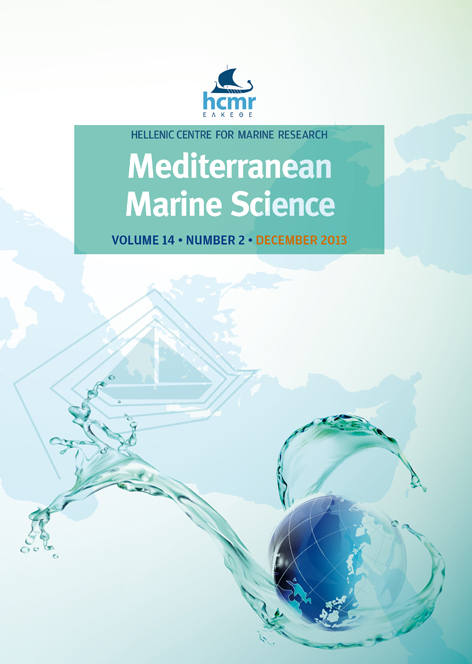Using guarding net to reduce regularly discarded invertebrates in trammel net fisheries operating on seagrass meadows (Posidonia oceanica) in Izmir Bay (Eastern Aegean Sea)
Abstract
Prohibition of both beach and boat seines and trawl fishery along the İzmir Bay coasts in the Aegean Sea signifies intensive usage of gillnets and trammel nets, for catching red mullet (Mullus spp.) species in particular. Trials were realized between March 2009 and February 2010 with trammel nets in the areas on the boundaries of the sea grass (Posidonia oceanica) meadows in the Bay. Guarding net (selvedge) was attached to the lead line of experimental nets (Exp1-Exp2) - 36 and 40 mm inner panel. Differences for discard amounts between control group nets (C1-C2) (having the same inner panel as the experimental nets), used by commercial fishermen, and experimental nets are 54.7% for C1-Exp1 and 62.8% for C2-Exp2 (p<0.05). Use of nets with selvedge not only reduced regularly discarded invertebrates (Hexaplex trunculus, Bolinus brandaris, Maja spp.) in the region, but also avoided net damage caused by these species.
Article Details
- Zitationsvorschlag
-
AYDIN, I., GOKCE, G., & METIN, C. (2013). Using guarding net to reduce regularly discarded invertebrates in trammel net fisheries operating on seagrass meadows (Posidonia oceanica) in Izmir Bay (Eastern Aegean Sea). Mediterranean Marine Science, 14(2), 282–291. https://doi.org/10.12681/mms.425
- Ausgabe
- Vol 14, No 2 (2013)
- Rubrik
- Research Article
Authors who publish with this journal agree to the following terms:
- Authors retain copyright and grant the journal right of first publication with the work simultaneously licensed under a Creative Commons Attribution Non-Commercial License that allows others to share the work with an acknowledgement of the work's authorship and initial publication in this journal.
- Authors are able to enter into separate, additional contractual arrangements for the non-exclusive distribution of the journal's published version of the work (e.g. post it to an institutional repository or publish it in a book), with an acknowledgement of its initial publication in this journal.
- Authors are permitted and encouraged to post their work online (preferably in institutional repositories or on their website) prior to and during the submission process, as it can lead to productive exchanges, as well as earlier and greater citation of published work (See The Effect of Open Access).






